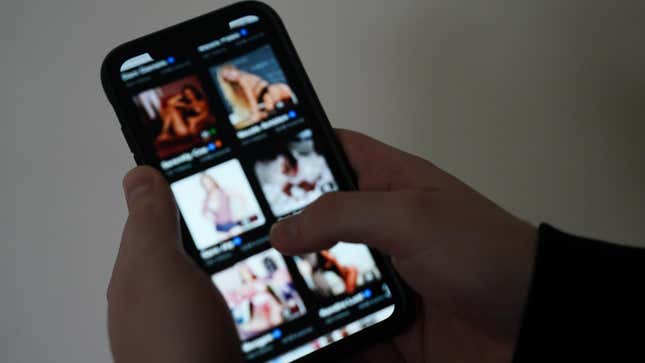
The Brits are getting serious about deepfake porn—so serious, in fact, that if you get caught making or sharing the content in the United Kingdom it could soon get you thrown in prison.
This week, the UK Ministry of Justice announced a new law that further criminalizes the distribution of sexually explicit computer-generated imagery. Sharing deepfake porn online was already illegal in the UK due to an amendment in the Online Safety Act, a controversial digital safety bill that went into effect late last year. Now, a newly introduced amendment to the Criminal Justice Bill—another controversial security law—would add additional punishments to individuals who create non-consensual deepfake porn.
“Under the new offence, those who create these horrific images without consent face a criminal record and an unlimited fine. If the image is then shared more widely offenders could be sent to jail,” the agency announced Tuesday.
Deepfakes use machine learning trained on imagery or video of a real person to insert their likeness into separate footage. In this case, the new footage is pornography.
The UK’s Minister for Victims and Safeguarding, Laura Farris, called the creation of deepfake porn “despicable” and said that it was “completely unacceptable irrespective of whether the image is shared.” Farris continued that the new law was designed to send a “crystal clear message that making this material is immoral, often misogynistic, and a crime.”
According to the BBC, the amendment is currently making its way through Parliament, and observers across the pond indicate that it’s likely to pass.
Gizmodo reached out to the UK Ministry of Justice for more information about the law and will update this story if it responds.
In the U.S., there is no equivalent federal law against deepfake porn, despite years of complaints from impacted celebrities and actresses. Some states have developed regulations designed to deal with the issue, although the enforcement of these laws hasn’t been tested much yet. The creation and distribution of sexually suggestive AI images of Taylor Swift on X/Twitter caused an uproar earlier this year, leading to renewed Congressional interest in the issue.




















+ There are no comments
Add yours